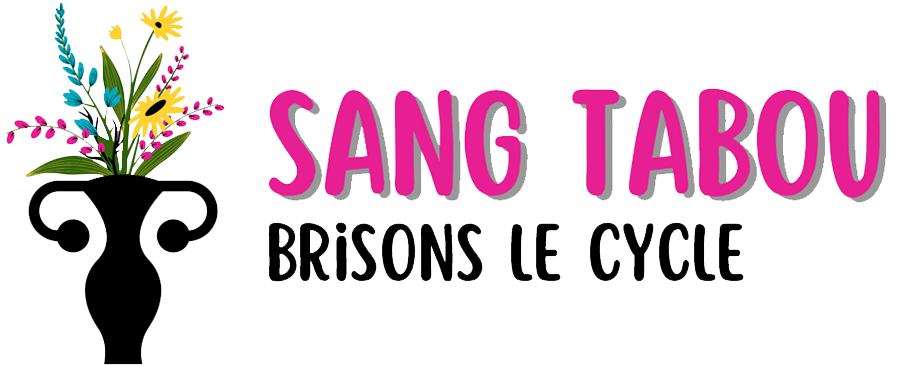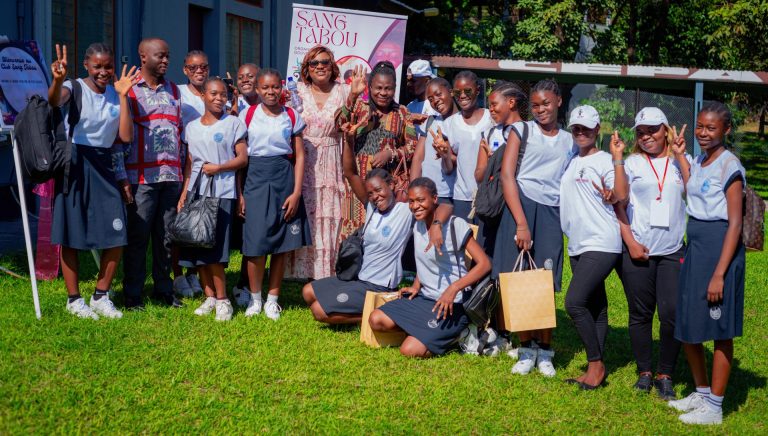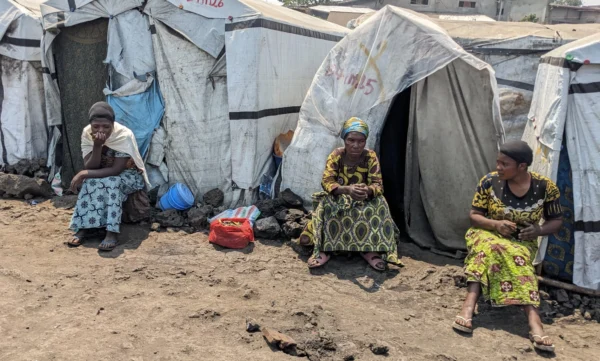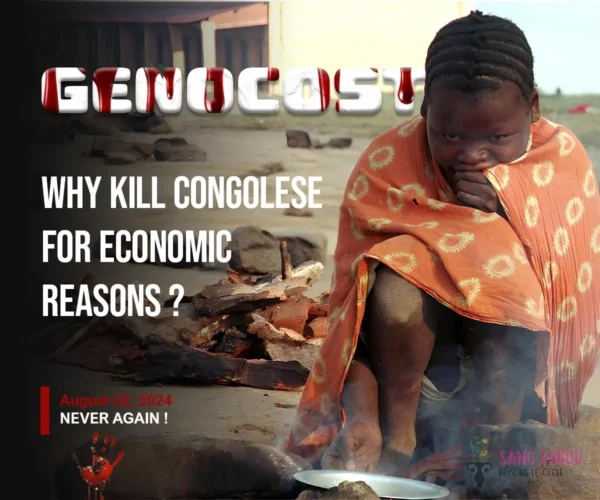In Congolese society, it’s generally considered taboo to talk about “menstrual periods” within the family or among close friends. As a result, the Congolese girl remains silent and in blatant ignorance throughout her growth, despite the pain she endures during her menstrual periods, and she can’t break this silence.
The more she grows up in this ignorance and shame, the more certain diseases develop in her reproductive system and are capable of shattering her entire femininity.
So, since July 2022, the non-governmental organization “SANG TABOU“, with the financial means at its disposal, has decided to take up the battle of awareness-raising campaigns for young Congolese girls/women in order to break this guilty silence.
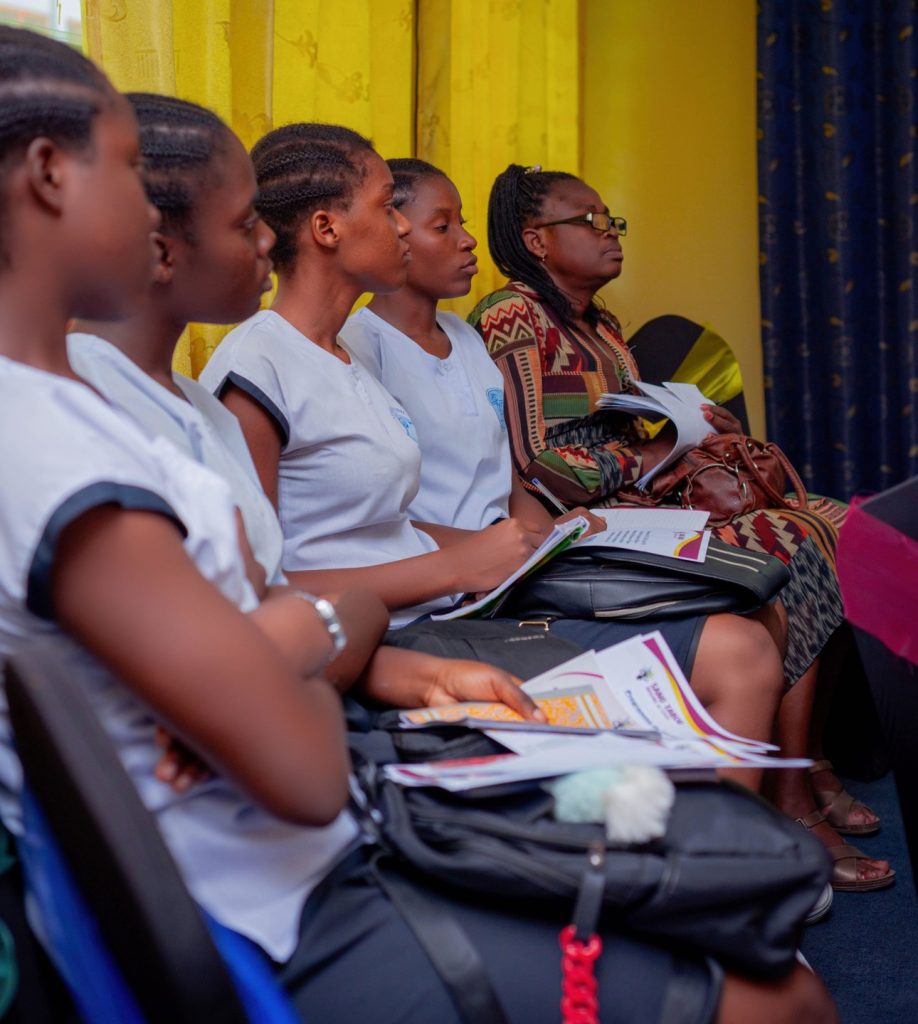
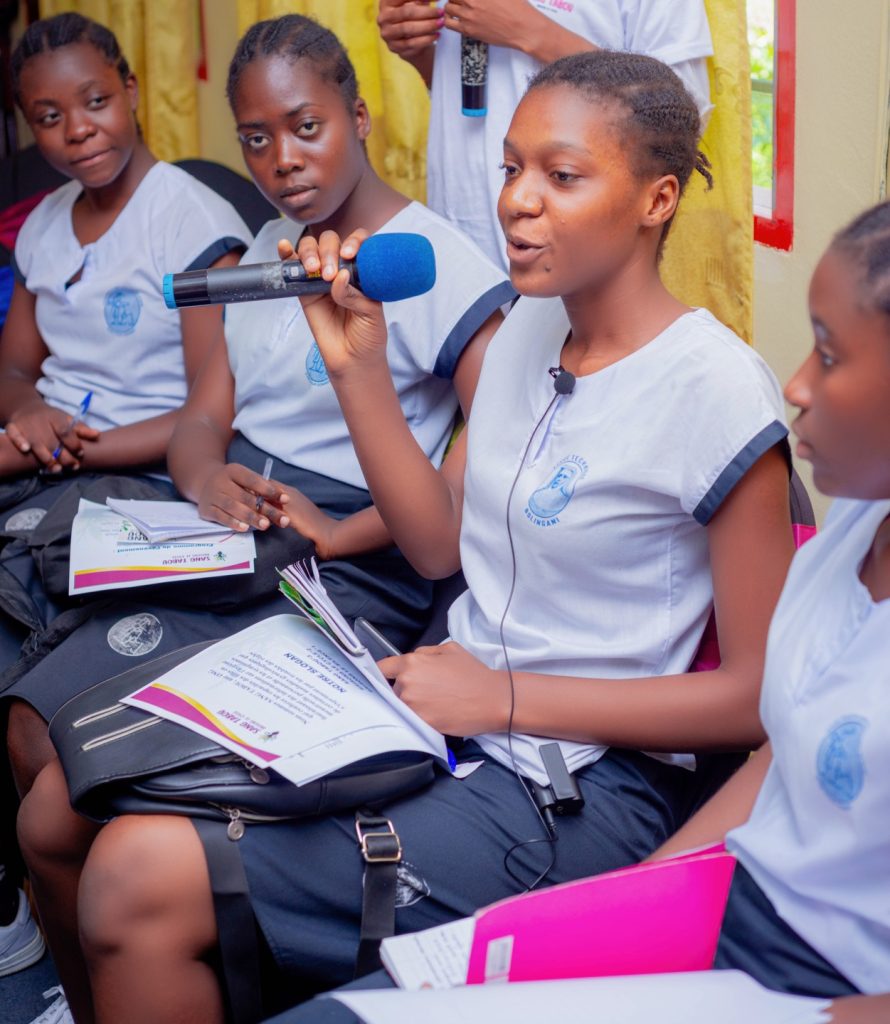
To mark World Girls’ Day, the NGO SANG TABOU organized the first edition of the Round Table, which brought together pupils from the KILIMANI school and the Lycée Technique BOLINGANI, with a presentation by the Olympic Hospital team comprising Dr. Clovis Mbokoko, Gynecologist, and Mr. Junior MABELA, Sales Manager. as well as the intervention of Mrs. Noëlla KWETE from Past4Africa around the question: Rules anomalies and their psycho-social impact. The event was held on October 28, 2023 at the Centre d’Études pour l’Action Sociale (CEPAS).
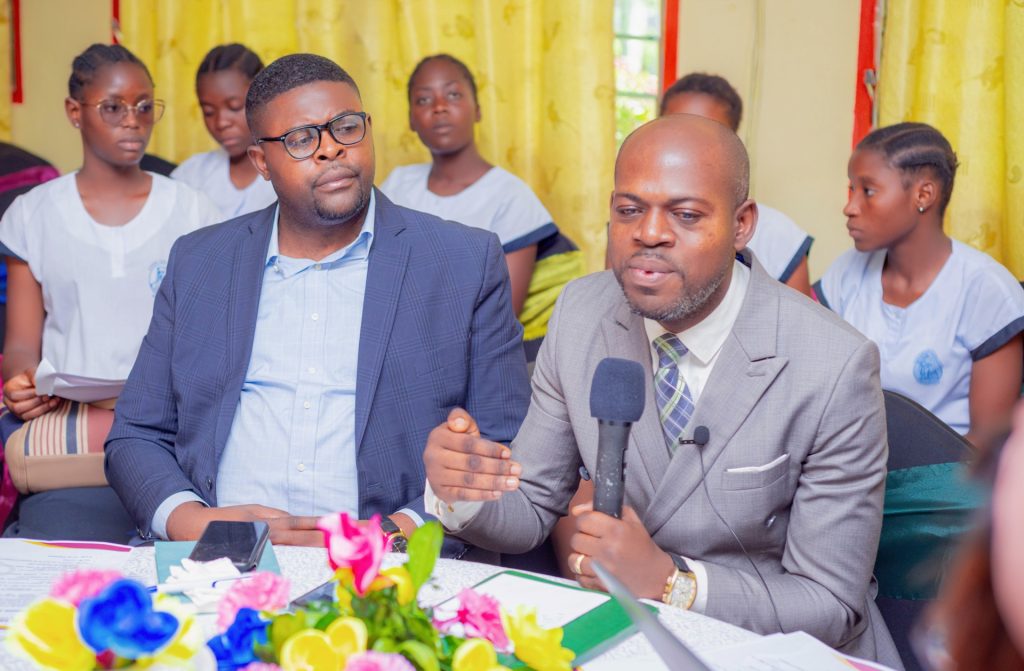
The Round Table is a new concept initiated by the NGO SANG TABOU, which will take place every quarter of the year to enable young girls to meet in a setting where they can express themselves freely, without fear or taboo, on subjects concerning their femininity. It’s a club for exchanges, encouragement, motivation and testimonials between women and girls, each of whom has a direct or indirect personal experience to share. The aim is to enable students to learn about and understand the workings of their reproductive systems and cycles, as well as the symptoms of certain gynecological diseases expressed in menstrual disorders and their psycho-social impact.
In the multi-purpose room of DEKER at CEPAS, in the presence of the Founder of the NGO SANG TABOU, the Olympic Hospital team, the Managing Director of Past4Africa and 11 pupils from Bolingani and one from the KILIMANI school. At around 11.05 a.m., we began our Round Table with the opening speech and presentation of the NGO by Ms. the Founder of the l’ONG Sang Tabou, as well as the presentation of each party.
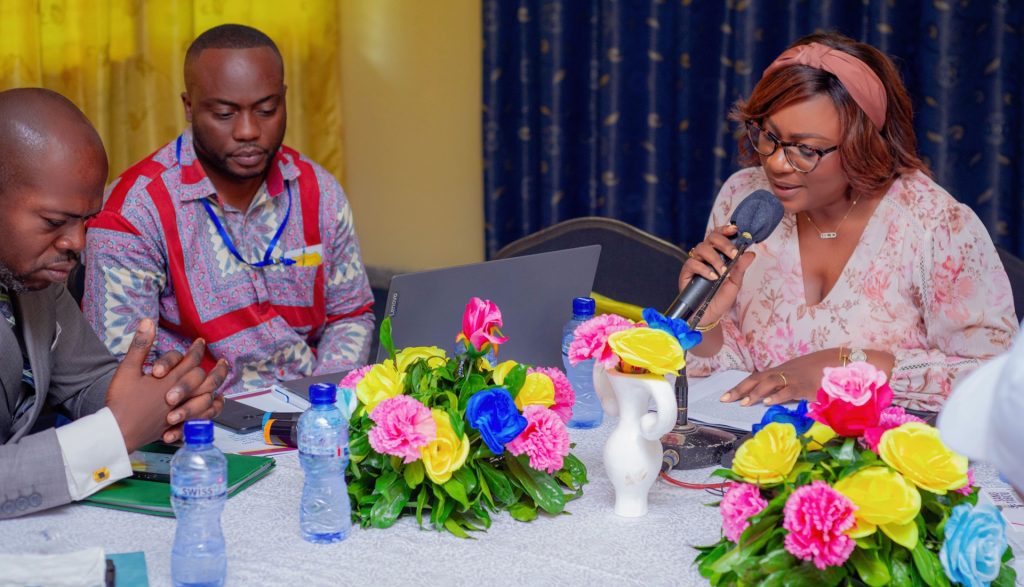
The onset of the first menstrual period is a significant event for a girl, and so she needs to be prepared, i.e. to break the cycle by providing her with the information she needs to ensure that her mind is not affected.
There are many reasons why menarche may come early or late, and these can lead to illnesses such as menstrual disorders, which can have a psychological impact on the young woman. It’s vital for young women to understand their bodies, to know the length of their cycle, which can vary from 24, 28 or 32 days, and which can be 1 or 2 days out of sync without this being a sign of any abnormality.
There is no method for quantifying menstruation. The only way to know how much menstruation there is is by the number of times you change your sanitary napkin, known as menstrual flow, which can be normal or abnormal. To be able to monitor the flow of exchanges, as normal menstruation has no impact on the general state of the body, the subject must be taken to hospital for appropriate care.
Ignorance, denigration, rejection and stigmatization are at the root of the psychosocial impact of menstrual disorders. The result is that young girls remain silent, unwilling to confide in anyone, leaving themselves to fend for themselves. This is why the NGO Sang Tabou has set up an exchange club to help women break their silence by sharing their experiences, helping themselves to open up, but also enabling other women to break out of their ignorance.
NGO SANG TABOU
